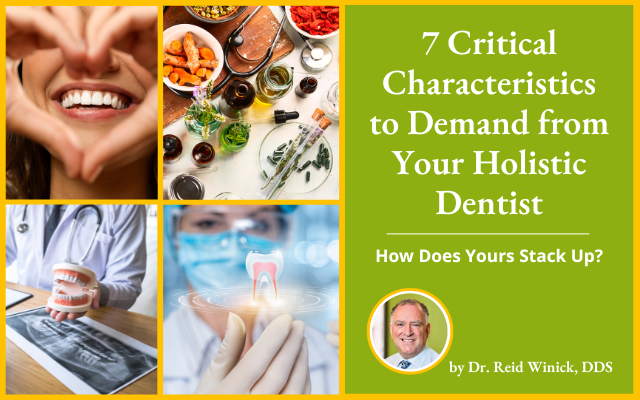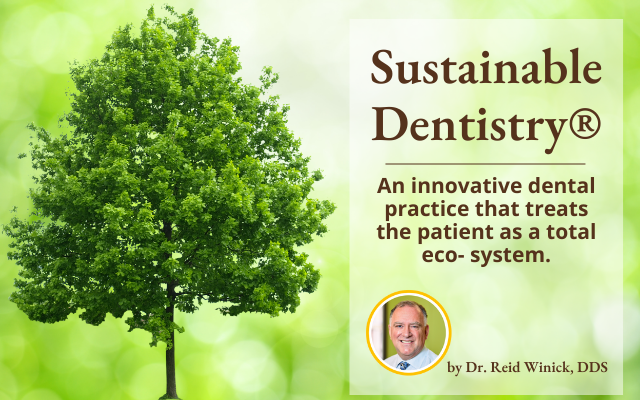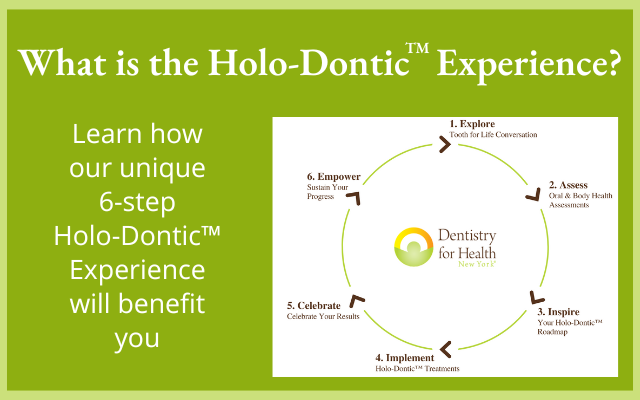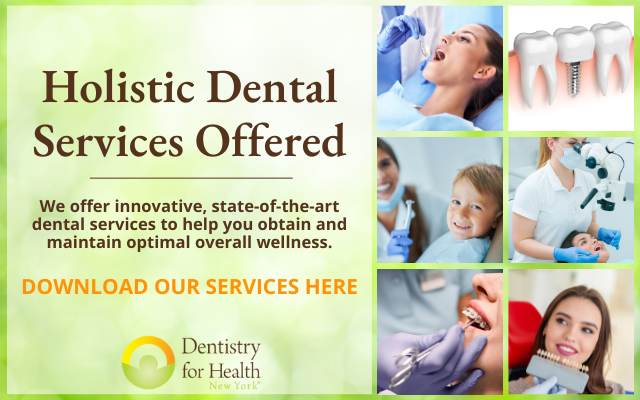Resources to Support Your Health & Wellness
FREE RESOURCES
MERIDIANS CHART
FREQUENTLY ASKED QUESTIONS
CLOSED
Let’s start with a definition:
“Holistic Dentistry” – A specific, organic approach to dental care that views oral health as merely one part of the patient’s overall well-being.
Here’s the bottom line: a Holistic Dental Practitioner combines modern dental techniques with proven, long-established traditions of natural healing.
Dentists who have chosen the holistic approach have the same degrees and training as traditional dentists. But they don’t stop there.
Holistic practitioners focus on long-term preventive care and prefer to use non-invasive procedures whenever possible. For example, experienced holistic practitioners stress the importance of strengthening the immune system to help fight infection – including oral and periodontal infections.
We believe that the body can maintain itself in a constant state of health if given the right tools, which include nutrition and biochemistry.
What is Holistic Dentistry?
Let’s start with a definition:
“Holistic Dentistry” – A specific, organic approach to dental care that views oral health as merely one part of the patient’s overall well-being.
Here’s the bottom line: a Holistic Dental Practitioner combines modern dental techniques with proven, long-established traditions of natural healing.
Dentists who have chosen the holistic approach have the same degrees and training as traditional dentists. But they don’t stop there.
Holistic practitioners focus on long-term preventive care and prefer to use non-invasive procedures whenever possible. For example, experienced holistic practitioners stress the importance of strengthening the immune system to help fight infection – including oral and periodontal infections.
We believe that the body can maintain itself in a constant state of health if given the right tools, which include nutrition and biochemistry.
How Does Holistic Dentistry Differ From Traditional Dentistry?
A holistic practitioner’s realm encompasses everything associated with your overall health — including the oral health area on which traditional dentists concentrate. By focusing on the whole patient, and not just specific symptoms, some real differences emerge in how a Holistic Dentist approaches diagnosis, treatment, and practice.
-
- Holistic practitioners stress the importance of preserving teeth–even those a traditional dentist might have suggested removing!
- Holistic dentists use fewer surgical procedures. Instead, they strive to prevent future cavities and gum disease.
- A holistic dentist will suggest certain foods to eat or to avoid to improve tooth and gum health. By taking the time to talk with you about your individual lifestyle and diet, they’re able to recommend any specific changes that might bring oral health benefits.
- With a strong concern about patient safety, most holistic dentists use digital, low-radiation x-rays, which require only minimal exposure.
- A holistic dentist will carefully screen all dental materials used to make sure they suit each patient’s unique immune system.
- In a holistic dental office, you may find filtered, purified water and special air cleaners. Some practitioners even go so far as to design their treatment areas to protect patients who may have allergies, and to extensively utilize the therapeutic benefits of sunlight.
- Finally, most holistic dentists want to help their patients relax and experience none of the unpleasant elements that have made so many people dread visiting a dentist. We strive to create a supportive and welcoming environment – a place where you can feel safe in the knowledge that your total health is our primary concern.
Actually, choosing a holistic dentist is part of assembling a skilled, experienced team to provide the kind of treatment that you have selected, whether it’s amalgam removal or general dental services. Since you’re choosing this path for your health care, you should consider other holistic practitioners such as a nutritionist, specially trained MD, DO or Chiropractor; and a lymphatic massage therapist.
What If I Find Out I Have “Mercury Toxicity”?
During examinations by a skilled holistic dentist, some patients will learn that they have “mercury toxicity.” If it turns out that you’ve developed this condition, the best first step you can take is to educate yourself about the issues of mercury exposure. Read, talk to people, and ask questions to gain some basic knowledge before you make any significant decisions about your treatment.
Here’s a key fact you’ll learn in your research:
Detoxification should not begin before the source of mercury is removed.
But do not start to remove the mercury until you learn what is needed to safely and properly remove this element, once you feel certain that you would prefer to replace your amalgams with safer materials.
Then, make sure your dentist begins your detoxification program two to three weeks before starting the amalgam removal process.
But First A Note Of Caution: Be leery of any dentist who wants to remove your amalgam fillings immediately if you are found to already have mercury toxicity.
It is true that the longer the source of mercury remains in place, the more accumulated damage is possible. But it’s even more important to proceed with extra care.
Do not rush into beginning your amalgam removal program before you’ve taken precautions to protect yourself throughout the process. An intricate protocol is needed to assure your safety while the mercury source is being removed and any dental fillings, crowns, etc. are being replaced with biocompatible materials.
After the procedures, a skilled practitioner will take all the required steps to detoxify your body by removing all remaining mercury from your system.
What Sort Of Treatment Schedule Should I Expect When Working With a Holistic Practitioner?
Once you select the holistic dentist to treat you, the procedures and their sequence will seem very different from traditional dentistry. Here are some things you’ll probably experience as your treatment begins.
- Plan your treatment jointly with as many different health providers as you and your dentist feel are optimal for your overall health. Choose the physician, lymphatic massage therapist, nutrititionist, detoxification doctor or other health professionals so that the timing of their services work well with each other, and do not interfere with the final results of your dental treatments.
- If examinations and discussions determine that your treatment will include removal of amalgam fillings, nickel crowns, and root canal effects, be sure to arrange appointments for all of the “removal procedures” within a time frame of one month, or less, if at all possible. Your treatments should be at least 48 hours apart.
- Your dentist will work with you to set up an appointment schedule in accordance with the 7-14-21 day immune cycles. Heeding this cycle will help you avoid the danger of developing an auto-immune condition you would not have had otherwise.
- If you’ll need restorations, your dentist will take electrical readings on all your fillings and crowns to determine the best sequence and timeline.
- From the available detoxification procedures your dentist describes, select the one most acceptable to you. Be careful to find the balance between adequate and overdoing. For most people, two to three procedures per week is about right. Don’t be in too big a rush and try to do six to seven a week – that’s just overdoing it for almost anyone.
Note: The biggest potential problem of dental revision is too much detoxification too fast. This advice encompasses detoxification medications as well as FAR-Infrared Saunas, etc. Get as much information as you can before you make your selection.
- Start your nutritional program, based on your consultations, as soon as it’s feasible in your program.
- Finally, observe your patient protection protocol as closely as possible during your removal procedures.



